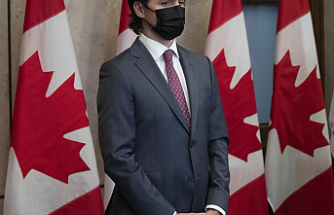Dan Coats will be at the epicenter Tuesday of the bitter squabble between President Trump and the U.S. intelligence community, which the former senator from Indiana will lead if he is confirmed as director of national intelligence.
Coats is certain to be asked at his Senate confirmation hearing about Russia’s interference in the 2016 presidential race, alleged contacts between Trump’s campaign and Russian authorities, and the president’s harsh criticism of U.S. intelligence agencies.
Coats, who stepped down from the Senate in January, is respected by members of both parties and is expected to win easy confirmation as head of the office of director of national intelligence. The position, created after the Sept. 11, 2001, terrorist attacks, involves coordination of the 16 U.S. intelligence agencies.
Like several others in Trump’s Cabinet, the 73-year-old Coats may not see eye to eye with the president, however.
He has been a harsh critic of Russian President Vladimir Putin, and wanted the Obama administration to severely punish Moscow for annexing Crimea in 2014 and intervening in Ukraine. The Kremlin banned him from visiting the country several years ago.
Trump’s repeated praise for Putin has alarmed many in the intelligence community who see a resurgent Russia threatening U.S. interests in the Middle East, in Eastern Europe and in the Arctic.
Questions about Russia’s role in the U.S. presidential race have proved particularly awkward for the White House.
The FBI is investigating Russia’s effort to influence the 2016 election, and whether any Trump associates had improper contacts with Russian officials during the previous year.
James Clapper, then director of national intelligence, issued a declassified report on Jan. 6 that concluded Putin’s government had ordered “an influence campaign in 2016 aimed at the U.S. presidential election.”
The Russian operation included hacking Democratic National Committee computers and leaking thousands of emails to WikiLeaks and other websites. Some of the emails embarrassed senior Democrats and proved a distraction to Hillary Clinton’s campaign.
The report concluded that Russian intelligence agencies sought to undermine Clinton’s campaign because senior Russian officials had developed a “clear preference” for Trump.
Trump and members of his administration have pushed back on the report and any suggestion that his campaign colluded with the Russians. Trump said Tuesday that he hadn’t “called Russia in 10 years.”
On Feb. 13, Trump’s national security advisor, Michael Flynn, was forced to resign after he acknowledging misleading Vice President Mike Pence about his conversations in December with the Russian ambassador to Washington about sanctions on Russia.
del.wilber@latimes.com
Twitter: @delwilber
Our editors found this article on this site using Google and regenerated it for our readers.









